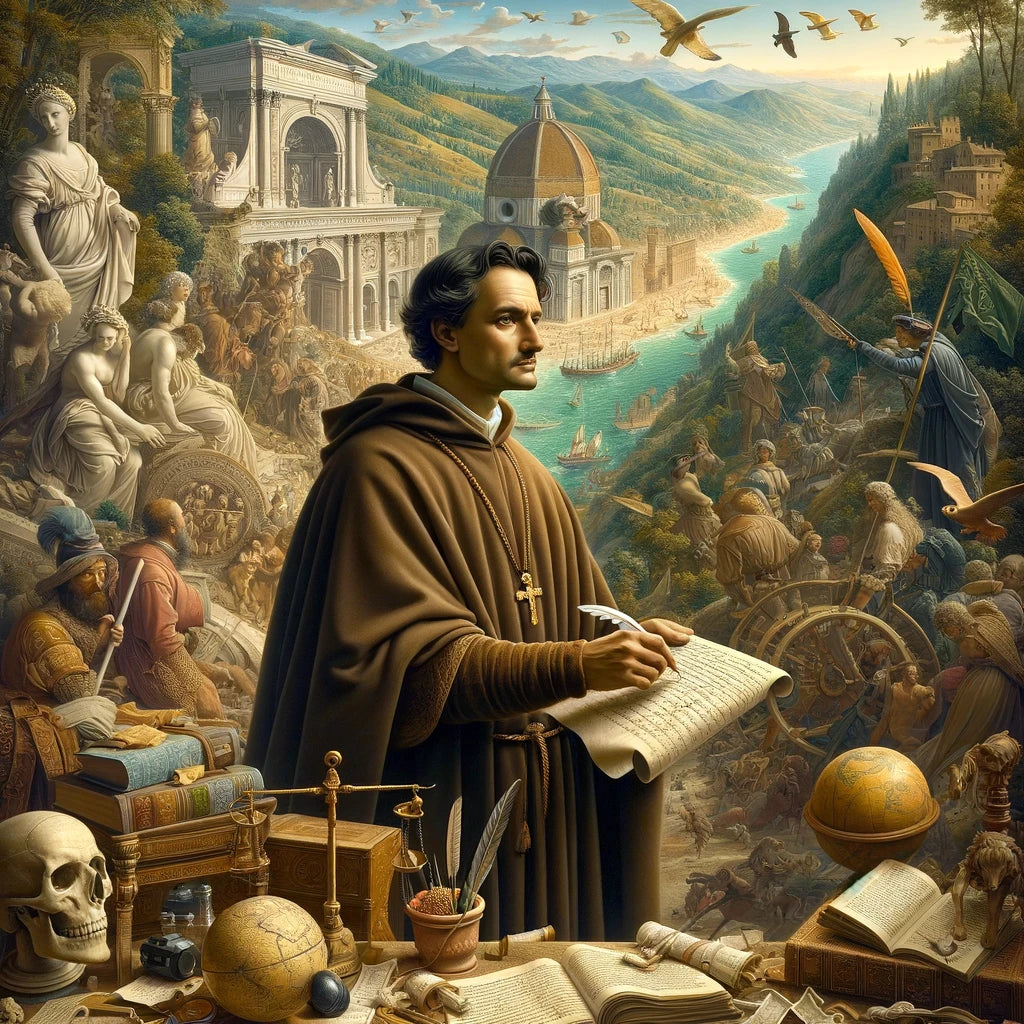Leandro Alberti's Descrittione di tutta Italia, published in 1550, is a comprehensive geographical and historical account of Italy that has served as a critical resource for understanding Italian cities, including Deruta, during the Renaissance. Alberti, a Dominican friar and historian, meticulously cataloged the various regions of Italy, offering insights into the political, historical, topographical, and archaeological aspects of each area. His work, dedicated to Henry II of France and his wife Catherine de Medici, extends beyond the scope of earlier works by incorporating a broader division of Italy into 19 regions and including the Italian islands not mentioned by his predecessors.
Although specific details about Deruta in Alberti's work are not directly accessible, his methodological approach—combining careful attention to sources with a comprehensive view of Italy's geography—suggests that any mention of Deruta would offer valuable insights into the town's significance during the 16th century. Alberti's work is known for its lack of critical scrutiny over sources, often following other authors like Raffaello Maffai or Annio da Viterbo without questioning the authenticity of their claims, which reflects the historiographical practices of his time.
One notable aspect of Alberti's work is his detailed description of places like Pisa, which he includes over several pages, mentioning landmarks such as the Camposanto and recounting legends related to the holy earth brought back from the Crusades. This level of detail indicates the depth of coverage Alberti's Descrittione provides for significant Italian cities and regions, suggesting that his account of Deruta, if available, would offer a similarly rich portrayal of the town's historical and cultural landscape during the Renaissance.
Alberti's Descrittione di tutta Italia represents a significant contribution to the historical and geographical literature of the Renaissance, offering a window into the Italy of the 16th century that continues to inform our understanding of the country's past. For those interested in the specifics of Deruta or any other Italian city during this period, Alberti's work remains a valuable starting point for historical exploration.

